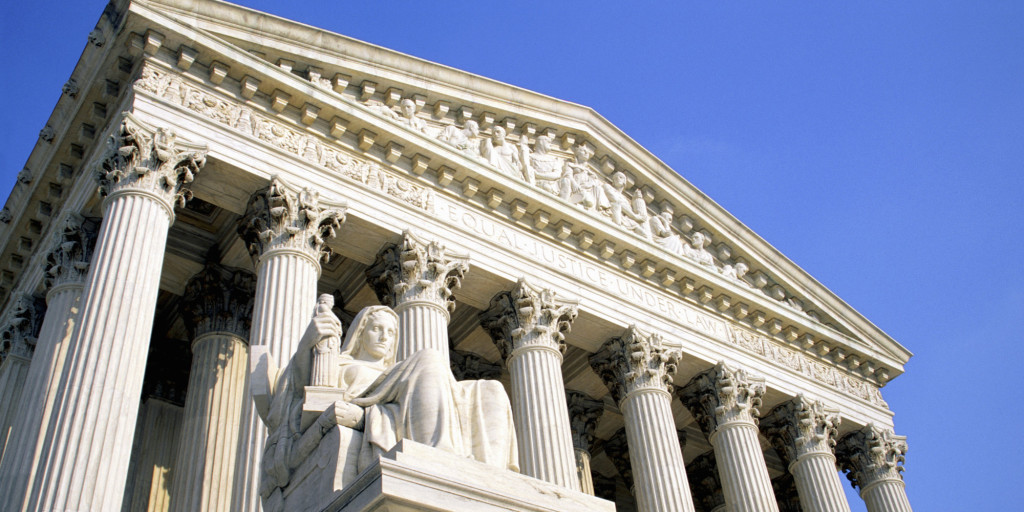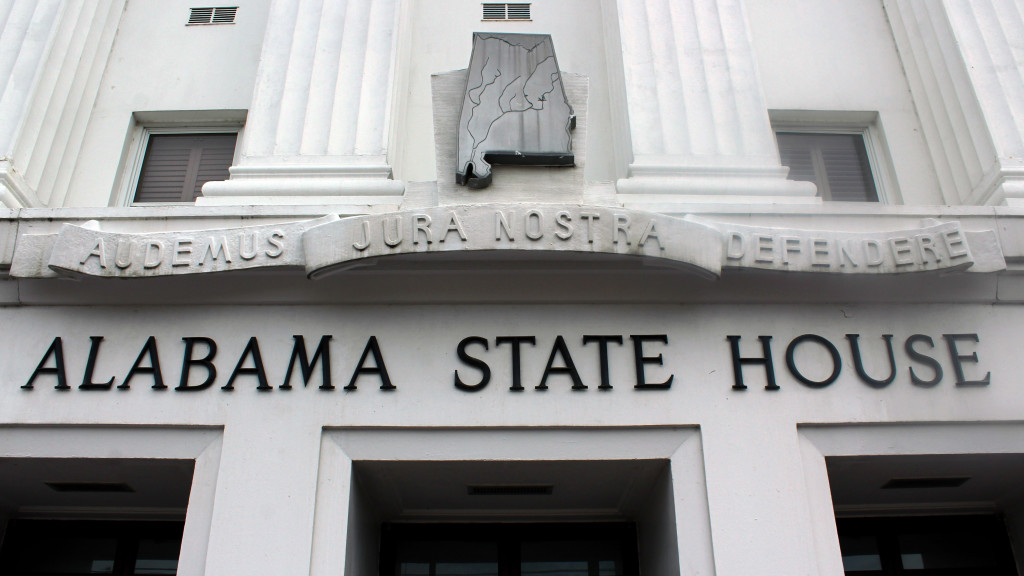Natalie Kelly: Enjoy spring break at an Alabama State Park and call your Senator

With this year’s Spring Break season upon us here in Alabama, the thought of a week of rest and relaxation is a welcome idea at the end of winter’s cooler months. While others spend thousands of dollars and fly or drive hundreds of miles in search of the perfect Spring Break getaway, you and your family can indulge in a similar escape, right here within your state. This Spring Break, take advantage of Alabama’s beautiful weather to enjoy fun and adventure and build lasting memories, all while soaking up the natural beauty abundant in Alabama’s 17 State Parks. From the lower Appalachian Mountains to the Gulf Coast, there is a State Park within easy driving range offering a great selection of many different adventures. Hikers can tackle more than 200 miles of various levels of trails located throughout the State Parks. Golfers can try their hand a number of different highly rated golf courses. Explore the massive cave at Cathedral Caverns, or simply lounge on the beaches of Gulf State Park or enjoy a phenomenal sunset atop of Mt. Cheaha. Get out on the way and catch some bass, crappie, or catfish in one of the lakes or creeks within Lakepoint, Guntersville or Wind Creek State Park. The parks also offer a wide range of accommodations. Whether you want to rough it camping in the wilderness or enjoy the amenities at a hotel or lodge, there’s something for everyone. In fact, Alabama State Parks boast close to 2,300 campsites, more than 200 cabins and 350 resort hotel rooms. Thanks to public and private partnerships from all around the state, many of the parks have opened a range of new and exciting attractions in recent years taking the outdoor experience well beyond simple camping, fishing, and hiking activities. Take a thrill ride while zip-lining at Gulf State Park’s Hummingbird Adventure Course, rent stand-up paddle-boards at many park locations, try your hand at wake boarding at Oak Mountain’s hydraulic wakeboard cable course, or take to one of the many award-winning biking trails within the park system. What many people may not know is that our state parks generate most of their own funding each year. In recent years, Alabama State Parks have had to endure several crushing budget cuts. As a result, five parks were forced to close due to lack of funding. Many others had to be temporarily closed during the winter season including Rickwood Caverns and Cheaha State Park, both of which are set to reopen soon and return to full operation — just in time for spring break. To help ensure our State Parks remain the true gift they are and accessible the public all year long, I encourage you to frequent them often — the benefit is mutual. One more thing, while you’re dreaming of that relaxing vacation, take a minute to call your state legislator to encourage a positive vote for Senator Clay Scofield’s SB260 that would allow all of us the right to vote to secure future funding for our parks. Scofield’s bill, which is currently making its way through the Legislature, is a proposed constitutional amendment to prohibit the transfer of any park funding to any other public account. If the bill passes, we will have the right to vote in November to prevent these devastating transfers. To learn more about our State Parks, visit the Alabama Parks Partners website. Join the coalition of individuals, businesses, community groups, student, and all lovers of Alabama State Parks to help protect these state treasures. The coalition often sponsors talking sessions at parks across the state to share information vital to friends of Alabama Parks System. See updates on the website or visit the Facebook page for upcoming events. We can’t wait to have you join us at the parks during this Spring Break — we promise you’ll discover one of your best vacations yet. • • • Natalie Kelly is an Alabama’s State Parks Partners coalition steering committee member. She’s a passionate advocate for the environment, sustainable communities and social progress. As the founder and CEO of Sustain and the founder and publisher of MyGreenBirmingham.com and MyGreenMontgomery.com, she helps communities and businesses identify, strategize and champion sustainability initiatives and helps tell these stories of innovation and progress. Kelly was recently named one of the Birmingham Business Journal’s “Top 40 Under 40” professionals.
Mike Hubbard expects special session over Medicaid funding

Though the House of Representatives ended its week on a low note, as Democrats filibustered plans to bring forth a General Fund void of adequate Medicaid funding Thursday, House Speaker Mike Hubbard (R-Auburn) was enthusiastic. “I think it was a productive week,” Hubbard said. Hubbard celebrated the House’s passage of a slew of bills, as well as committee work to move the General Fund onto the House floor Tuesday, but was fatalistic in his assessment of how the General Fund will play out. According to Hubbard, Medicaid has long been syphoning an enormous portion of the state’s General Fund allocations to the detriment of other departments. He noted that most House Republicans don’t have the appetite to continue providing the increases the program has become accustomed to. “The money to appropriate is there,” Hubbard said. “The problem is that Medicaid wants all of it and then some.” Hubbard noted that he expects Gov. Robert Bentley to call a special session if the General Fund fails to fully fund Medicaid, but said it would be a mistake to call legislators back immediately after the close of the regular session. He added that it might be prudent to see how the November General Election plays out, as changes to healthcare may be on the horizon. Along with the prison system, Medicaid takes up roughly 62 percent of the General Fund budget. The only way to fund it at the desired amount, Hubbard said, would be to cut about $85 million from other departments’ budgets – Medicaid will receive an additional $15 million this year, but still faces a shortfall of roughly $100 million. “We’re not going to fund Medicaid at the expense of educating our kids,” Hubbard said. During the session, Rep. John Knight (D-Montgomery) mentioned that the state should look into raising more revenue, likely through tax hikes. However, Hubbard noted that moves to increase revenue from last year’s cigarette tax increase was difficult to pass and doesn’t believe House members would be willing to fight it out again this year. Though he believes the Democrats will filibuster the budget when it comes to the floor next week, Hubbard still thinks bringing it now is a good idea as lawmakers are still angling for passage before spring break.
Barack Obama signals Supreme Court announcement could come soon

President Barack Obama on Thursday signaled that his announcement of a Supreme Court nominee could come soon, saying the nation’s highest court needs to operate at full strength. Obama did not say when he would reveal his choice to succeed the late Justice Antonin Scalia, who died last month. Senate Republicans have promised to ignore the nominee. “I think it’s important for me to nominate a Supreme Court nominee quickly because I think it’s important for the Supreme Court to have its full complement of justices,” he said during a White House news conference with Canadian Prime Minister Justin Trudeau. Obama said he wants an “outstanding jurist” with “impeccable legal credentials, who, by historical standards, would not even be questioned as qualified for the court.” In the hours after Scalia’s death in mid-February, Senate Republican leaders pledged to block any Obama nominee, saying the president who is elected in November should get to make that pick. “So in terms of who I select, I’m going to do my job,” Obama said. “And then my expectation is going to be will the Senate do its job as outlined in the Constitution?” Obama brushed aside the notion that the contentious confirmation process would limit his field of potential choices. His advisers planned to discuss the vacancy at the White House on Thursday with Democrats on the Senate Judiciary Committee. “I don’t feel constrained in terms of the pool to draw from or that I’m having to take shortcuts in terms of the selection and vetting process,” he said. In his search for a successor to Scalia, Obama is zeroing in on a small group of appellate court judges with largely traditional credentials and a history of bipartisan backing. That suggests the White House plans to challenge the Republican Senate to block a nominee whose pedigree might have paved the way for a relatively easy confirmation, if the fight weren’t playing out in an election year. Among the candidates in Obama’s top tier are, according to a source familiar with the selection process: Judge Sri Srinivasan of U.S. Court of Appeals for the District of Columbia Circuit. Merrick Garland, chief judge on the same court. Judge Paul Watford of the 9th U.S. Circuit Court of Appeals. Ketanji Brown Jackson, a district court judge in Washington, is also under consideration, although a less likely option, said the source, who was not authorized to publicly discuss private White House deliberations and spoke on condition of anonymity. The judges’ inclusion on the short list was first reported by National Public Radio, which also named Judge Jane Kelly of the 8th U.S. Circuit Court of Appeals as a finalist being interviewed by the president. The emerging list, which the White House says is not final, seems in line both with Obama’s personal and political aims. As he has in his past two nominations, Obama appears drawn to candidates with traditional resumes – Supreme Court clerkships, prestigious posts in government and stints at major law firms. The list also shows the president grappling with whether to add racial or gender diversity to the court. Srinivasan, 49, would be the first Indian-American on the court, while Watford, 48, would be the third African-American to hold a seat. Brown Jackson, 45, would be the first African-American woman. The White House has stressed that the nominee will have “impeccable” credentials, suggesting that person will have a record so sterling it will shame GOP senators into backing down. Obama’s consideration of Garland appears to fit that approach. Garland, a white 63-year-old with an Ivy League, East Coast background, would not add diversity to the court. But with a reputation as a judicial moderate and with broad respect in Washington, Garland could put maximum pressure on some GOP senators to crack from leadership opposition. Both Srinivasan and Watford come with some bipartisan endorsement. Srinivasan was unanimously confirmed to the bench in 2013. Watford’s confirmation vote was 61-34. As Obama appointments, neither comes with long records on the bench, leaving their judicial philosophies somewhat ambiguous. On the short list, only Kelly, a former public defender in Iowa, did not follow the traditional ladder to the highest court. The risks associated with her experience have already emerged. In recent days, conservative groups raised questions about Kelly’s work securing a plea deal for a man facing child pornography charges. After two decades as a criminal defense lawyer, similar cases are likely in her background. Republished with permission of the Associated Press.
Luther Strange moves to have death penalty ruling vacated

On Thursday, Attorney General Luther Strange said the state has filed a petition with the Alabama Court of Criminal Appeals to order a Jefferson County trial court to vacate an earlier ruling on the state’s death penalty. Last week, the court ruled that the state’s “capital sentencing scheme” is unconstitutional. The petition filed Thursday notes that the lower court has “no power to prevent the state from seeking the death penalty in capital murder cases,” according to a news release from the Attorney General’s office. Portions of the petition read as follows: The trial court’s order ignores on-point precedent from the Supreme Court of the United States and the Supreme Court of Alabama. The trial court does not have the power to prevent the State of Alabama from seeking the death penalty when and if the defendant is convicted of capital murder. Although recent legal developments may call into question the imposition of the death penalty under certain circumstances, the trial court’s order is indefensible. It eliminates the State’s ability to seek the death penalty for four offenders. And it does so as a facial matter before they have even been found guilty. To ensure that these and other prosecutions can move forward in an orderly and equitable manner, the Court should grant the petition for writ of mandamus and direct the trial court to vacate its order declaring Alabama’s ‘capital sentencing scheme’ to be facially unconstitutional. The petition further notes that Alabama’s death penalty is constitutional under the Sixth Amendment and that the trial court has no other findings to support its assertion that the death penalty is unconstitutional. “The trial court’s order is nothing less than a declaration that it will not follow Alabama law or the precedents of the Supreme Court of Alabama,” the petition reads in part. “The State has a clear legal right to seek the death penalty.”
Democrats filibuster plans to bring up General Fund budget next week

Word came through the pipeline early Thursday from an intern of Rep. Craig Ford (D-Gadsden) that House Democrats would be filibustering the introduction of the Special Order Calendar, approved by the Rules Committee, which aims to bring forth the General Fund budget for discussion next week. True to form, Dems did just that when Rep. Mac McCutcheon (R-Huntsville) moved for approval of the calendar. Rep. John Knight (D-Montgomery) spoke first and chastised members of the Rules Committee for putting forth legislation for discussion which hasn’t addressed paramount problems of the state. “If we’re not going to fund Medicaid, there’s no need for us to have any kind of order,” Knight said. “There will be no order in this House until we decide to fund Medicaid.” Knight said more than 500,000 Alabama children use Medicaid and choosing not to adequately fund the program would take away those children’s health care. Knight encouraged members to meet with Gov. Robert Bentley and others to find a solution, possibly cutting other programs to fund it. “If we can’t do that, there’s no need in us being here,” Knight said. “We were elected to do our jobs. We came together on the education budget, so we must do the same thing as it relates to the General Fund budget.” Rep. Mary Moore (D-Birmingham) also railed against the calendar, urging lawmakers to do whatever is required to provide relief to Alabama’s most needy citizens and make sure that Medicaid funding is a priority for the state. Rep. Ralph Howard (D-Greensboro) spoke out against the General Fund’s failure to adequately fund Medicaid, leaving an about $100 million shortfall in the program and obliterating Alabama’s plans to institute the Regional Care Organization (RCO) plan. “I represent a lot of poor people and healthcare is something that’s very important to them,” Howard said. “I just wanted to convey to this body that we really need to take a look at what we do for those poor people.” Howard noted that Perry County hasn’t had a hospital in many years and rural hospitals are being decimated by the state’s failure to fund Medicaid. “It needs to be the will of this body, and the Senate and the governor, to really try to make Alabama a better place,” Howard said. “And I don’t think there’s a better place to start than healthcare. Those are good people in rural Alabama and they deserve better.” As Howard completed his statements, Rep. Danny Crawford (R-Athens) made a motion to adjourn and the House agreed.
Federal officials seek to dismiss Robert Bentley refugee lawsuit

The federal government is asking a judge to dismiss Alabama’s lawsuit over refugee settlement, saying states have no “veto power” over refugee placement decisions. Lawyers with the U.S. Department of Justice filed the motion Tuesday in Birmingham federal court seeking an end to the lawsuit filed by Gov. Robert Bentley. Federal officials say refugee resettlement is a federal decision, and that the state isn’t entitled to pick and choose which refugees locate in the state. Bentley sued federal officials earlier this year. The lawsuit asks a judge to require the federal government to provide the state with the entire government file on refugees who have been or will be settled in Alabama. The suit asks a court to block any future settlement until the information is handed over. Republished with permission of the Associated Press.
Senate committee OKs Fetal Heartbeat Act

The Senate Health and Human Services Committee approved a bill Wednesday that would require physicians to check for a fetal heartbeat before and abortion and prohibit abortions if a heartbeat is detected. SB9 from Sen. Gerald Allen (R-Tuscaloosa) follows a laundry list of controversial bills filed by the Senator and defies previous Supreme Court rulings, which overturned similar legislation in other states. Allen’s bill makes no exception for cases of rape or incest, only in the instance of mortal threat to the mother. The bill further provides penalties for physicians who defy the law making the offense a Class C felony that carries a fine of $15,000 and up to 10 years in prison. Supporters of the bill alleged that studies have shown fetuses are more developed than previously believed, with one suggesting that fetuses are capable of sustaining memories. Opponents suggested that, because heartbeats are detectable as early as five weeks into a pregnancy, the legislation would prohibit many women from attaining an abortion. Further, opponents questioned the state’s ability to afford the lengthy legal battle that would likely ensue as a result of the bill’s passage. The committee passed the legislation with only Sen. William Beasley (D-Clayton) objecting. A similar bill has been filed in the House of Representatives by Rep. Terri Collins (R-Decatur) The committee also approved a bill from Rep. April Weaver (R-Brierfield) which would out law the already illegal practice of selling fetal tissue and parts. Again, Beasley was the only dissenting voice on the committee. Both bills will now go before the full Senate.
10 must-read quotes from Wednesday night’s Univision Democratic debate

Presidential hopefuls Hillary Clinton and Bernie Sanders took center-stage in Miami Wednesday night where the two clashed dramatically over a variety of hot-button issues as they both tried to woo Hispanic voters and outdo each other in attacking Republican candidate Donald Trump, in yet another contentious Democratic debate. Hosted by Univision and The Washington Post, the two-hour debate was the candidates’ final opportunity to make televised cases to voters in Florida, Ohio, Missouri, North Carolina and Illinois who will cast their ballots in primary contests on Tuesday. Below we’ve rounded up 10 of the most significant quotes from the debate: On Donald Trump: BERNIE SANDERS: I think that the American people are never going to elect a president who insults Mexicans, who insults Muslims, who insults women, who insults African-Americans and let us not forget that several years ago, Trump was in the middle of the so-called birther movement trying to delegitimize the president of the United States of America. My dad was born in Poland. I know a little bit about the immigrant experience. Nobody has ever asked me for my birth certificate. Maybe it has something to do with the color of my skin. On the Clinton email scandal: HILLARY CLINTON: There’s a lot of questions in there. And I’m going to give the same answer I’ve been giving for many months. On deporting undocumented immigrants: HILLARY CLINTON: I will not deport children. I would not deport children. I do not want to deport family members, either. I want to prioritize who would be deported: violent criminals, people planning terrorist attacks, anybody who threatens us. On Sanders vs. Clinton’s political record: BERNIE SANDERS: I will stand — my career, political career fighting for workers, fighting for the poorest people in this country. Madam Secretary, I will match my record against yours any day of the week. On Benghazi: HILLARY CLINTON: This is not the first time we lost Americans in a terrorist attack. We lost 3,000 people on 9/11. We lost Americans serving in embassies in Tanzania and Kenya when my husband was president. We lost 250 Americans when Ronald Reagan was president in Beirut. At no other time were those tragedies politicized. Instead people said let’s learn the lesson and save lives On interventions with Latin America: BERNIE SANDERS: The United States was wrong to try to invade Cuba. The United States was wrong trying to support people to overthrow the Nicaraguan government, the United States was wrong to try to overthrow the democratically elected government of Guatemala. Throughout the history of our relationship with Latin America we’ve operated under the so-called Monroe doctrine, and that said the United States had the right do anything they wanted do in Latin America. On Clinton’s relationship with Wall Street: BERNIE SANDERS: Secretary’s words to Wall Street has really intimidated them, and that is why they have given her $15 million in campaign contributions. On Trump’s Mexican wall proposal: HILLARY CLINTON: I understand him, he’s talking about a very tall wall, right, a beautiful tall wall, the most beautiful tall wall, better than the Great Wall of China. He would somehow magically get the Mexican government to pay for, and, you know, it’s just fantasy. On college tuition: HILLARY CLINTON: The government has to quit making money off of lending money to young people to get their education. BERNIE SANDERS REBUTTAL: What secretary Clinton said is absolutely right. I think I said it many months before she said it, but thanks for copying a very good idea. On George W. Bush: HILLARY CLINTON: I wish he would criticize – and join me in criticizing – President George W. Bush,” she said. Bernie is, in fact, a staunch and outspoken Bush critic. The folly of Bush’s Iraq war – which HRC voted for – is a staple of his stump speech. BERNIE SANDERS REBUTTAL: I gather Secretary Clinton hasn’t listened to too many of my speeches.
Lawmakers introduce bill to legalize industrial hemp

Sen Paul Bussman (R-Cullman) and Rep. Ken Johnson (R-Moutlon), alongside Alabama Agriculture and Industries Commissioner John McMillan, held a news conference Wednesday to introduce legislation aimed at legalizing industrial hemp in the state. The legislation would allow Alabama colleges and the Department of Agriculture to grow and research hemp, the nonintoxicating strand of marijuana, making the state the 29th to do so. “The federal government has approved the production of industrial hemp and 28 states have already green-lighted pilot programs or production,” Bussman remarked in a news release. “This bill would allow the Agriculture Department and our colleges and universities to investigate the full uses of industrial hemp, which we already know can be used in the production of insulation materials, yarns, textiles, and even auto parts.” Auburn University conducted a study last year, which found that Alabama’s climate and soil is ideal for growing the endurable plant and the Hemp Industries Association found that retail values of hemp came it at about $620 million in 2014. “If this is a viable and productive crop in other states, we owe it to Alabama farmers to at least research the economic opportunities in our own backyard,” Johnson said in the release. “This legislation simply allows our colleges, universities, and the Department of Agriculture to evaluate whether industrial hemp is a good fit for Alabama.” Hemp can be used for a variety of purposes, including paper, fabrics, biofuels, construction materials, plastic composites and more. Hemp requires no pesticides and less water than conventional crops. Further, it breathes CO2, detoxifies soil and prevents soil erosion.


